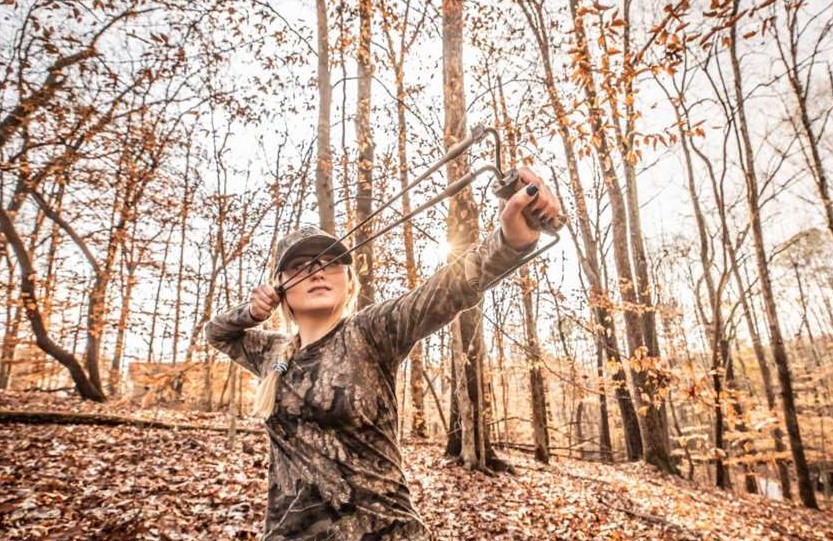The legality of slingshots in Connecticut is a topic that has piqued the interest of many due to their diverse applications, from recreational use to hunting. While slingshots are often viewed as harmless toys, they can also be considered weapons depending on their design and purpose. This article provides a detailed analysis of the laws and regulations surrounding slingshots in Connecticut, addressing key aspects such as ownership, usage, and restrictions to help you navigate this topic comprehensively. Follow: self-defensetools.com!
What is a Slingshot?
Before diving into the legal framework, it’s essential to define what a slingshot is. A slingshot is a handheld device typically consisting of a Y-shaped frame with elastic bands attached. The user pulls back the elastic band to launch small projectiles, such as stones, pellets, or other objects. Slingshots vary in size, material, and functionality, with some designed for recreational activities like target practice and others engineered for hunting or competitive shooting.
Statewide Laws on Slingshots in Connecticut
Connecticut law does not explicitly ban the possession of slingshots. However, their usage is regulated under various statutes, particularly when they are employed as weapons. Below are the primary aspects to consider:
1. Possession of Slingshots
In Connecticut, owning a slingshot is generally legal. There is no statewide prohibition against purchasing or possessing slingshots for recreational or personal use. However, local ordinances may impose specific restrictions, so it is advisable to check municipal laws in your area to ensure compliance.
2. Use of Slingshots as Weapons
While slingshots are not inherently classified as weapons under Connecticut law, their usage in a threatening or harmful manner can lead to legal consequences. Under Connecticut General Statutes (§ 53a-3), any object used to inflict injury or cause harm may be considered a weapon, including slingshots. Using a slingshot to harm someone, damage property, or commit a crime could result in charges such as assault or reckless endangerment.
Hunting Regulations and Slingshots
Hunting with slingshots is another area where regulations come into play. Connecticut has strict rules governing hunting practices, and slingshots fall into a gray area depending on their intended use.
1. Prohibited Weapons for Hunting
According to the Connecticut Department of Energy and Environmental Protection (DEEP), firearms, bows, and crossbows are the primary tools permitted for hunting game animals. Slingshots are not explicitly mentioned in the state’s hunting regulations, which means they are generally not considered a standard hunting tool.
2. Non-Game Species
For non-game species such as pests or invasive animals, slingshots may be permissible in some circumstances. However, it is crucial to consult DEEP or local authorities before using a slingshot for any hunting-related activity to avoid potential violations.
3. Hunting on Private Land
On private property, the use of slingshots for pest control or recreational hunting is more lenient, provided that it does not violate local ordinances or endanger public safety. Always obtain permission from the property owner if you are not the landowner.
Slingshots in Public Spaces
Using slingshots in public spaces is subject to several restrictions aimed at ensuring public safety. Discharging a slingshot in a manner that could harm others, damage property, or cause public alarm is illegal.
1. Public Safety Laws
Under Connecticut General Statutes (§ 53a-181), actions that create a risk to public safety, such as reckless use of a slingshot, can result in charges of breach of peace or reckless endangerment. This includes firing projectiles in densely populated areas or near public infrastructure.
2. Municipal Ordinances
Some cities and towns in Connecticut have enacted ordinances that regulate or prohibit the use of slingshots in specific areas. For example, local parks or schools may have rules banning slingshot use to prevent accidents or injuries.

Legal Penalties for Misuse of Slingshots
Misusing a slingshot can lead to legal consequences in Connecticut. The severity of penalties depends on the nature of the offense:
1. Assault Charges
Using a slingshot to intentionally harm another person can result in assault charges. Depending on the severity of the injury caused, this could range from a misdemeanor to a felony under Connecticut law.
2. Property Damage
Discharging a slingshot and causing property damage, whether intentional or accidental, may lead to charges of criminal mischief. Restitution to the property owner may also be required.
3. Endangering Minors
Allowing minors to use slingshots irresponsibly or without supervision can lead to legal repercussions for the responsible adult. Ensuring proper education and supervision is crucial to avoid accidents and liability.
Tips for Responsible Slingshot Use in Connecticut
To ensure safe and lawful use of slingshots, follow these guidelines:
1. Familiarize Yourself with Local Laws
Check municipal codes and ordinances in your area to confirm that slingshot use is permitted. Some towns may have stricter regulations than the state as a whole.
2. Use in Designated Areas
Practice using slingshots in safe, designated areas such as private property or shooting ranges. Avoid public spaces where the use of slingshots could pose a risk to others.
3. Prioritize Safety
Always wear protective gear, such as safety glasses, when using a slingshot. Ensure that your target area is clear of people, animals, and property to prevent accidents.
4. Educate Minors
If allowing minors to use slingshots, provide proper training and supervision. Teach them about the potential dangers and responsibilities associated with slingshot use.
Conclusion
In Connecticut, slingshots are generally legal to own and use, but their application is subject to various restrictions designed to ensure public safety. Whether you use a slingshot for recreational purposes, hunting, or pest control, understanding the legal framework is essential to avoid potential penalties. Always consult state and local laws, practice responsible usage, and prioritize safety to enjoy slingshots without legal complications.
Related Posts: Are Slingshots Illegal in Colorado?









